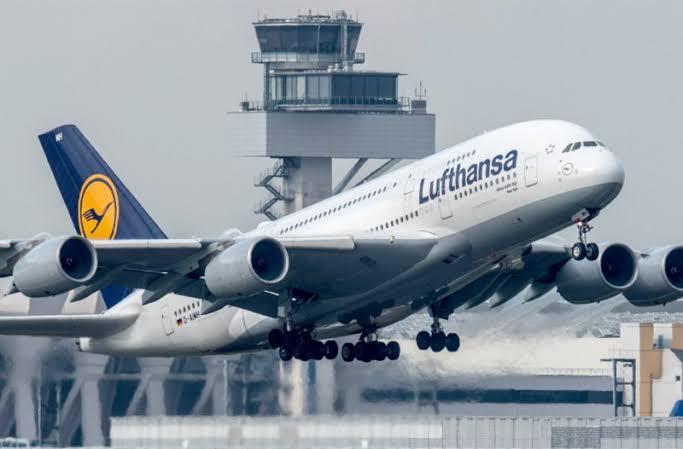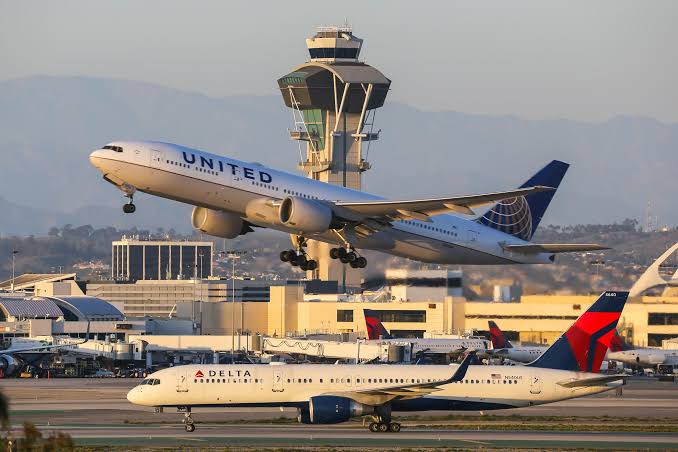Lufthansa suspends flights to the Middle East for another week
Lufthansa Extends Middle East Flight Suspension Amid Ongoing Regional Tensions
Frankfurt, Germany – April 16, 2025 — Lufthansa Group, one of Europe’s largest airline conglomerates, has announced an extension of its suspension of flights to and from several Middle Eastern destinations. The airline, citing growing security concerns and regional instability, confirmed that flights will remain halted for an additional week, pushing the expected resumption date to at least April 23, 2025.
The suspension affects routes to several major cities, including Tel Aviv, Tehran, Beirut, Amman, and Erbil. The decision reflects a cautious response to the heightened risk environment in the region, which has escalated over recent weeks due to increasing tensions between Israel and Iran and the broader implications for neighboring countries.
Background: Escalating Geopolitical Tensions
The flight suspensions were first introduced earlier this month, following a sharp escalation in hostilities across parts of the Middle East. Military exchanges between Israel and Iran, combined with cross-border rocket attacks involving Hezbollah in Lebanon and ongoing unrest in Gaza, have significantly raised the risk level for air travel across the region.
The geopolitical climate remains volatile, and analysts warn of the potential for further escalation. In this environment, many airlines, including Lufthansa Group and its subsidiaries—Swiss International Air Lines, Austrian Airlines, Brussels Airlines, and Eurowings—have chosen to err on the side of caution by halting their operations temporarily.
“The safety of our passengers and crew is always our top priority,” said a Lufthansa spokesperson in an official statement. “Due to the current security situation in parts of the Middle East, we have decided to extend the suspension of our services to affected cities. We continue to monitor developments closely and are in regular contact with relevant authorities.”
Impact on Travelers
The ongoing suspension has disrupted travel plans for thousands of passengers, including tourists, business travelers, and those visiting family in the affected regions. Lufthansa has implemented a flexible rebooking policy to mitigate the inconvenience, offering full refunds or complimentary rescheduling for affected flights.
In some cases, travelers have had to reroute through other airlines that are still servicing the region, though options have grown increasingly limited as more carriers join Lufthansa in suspending operations.
“We recognize how frustrating and disappointing this situation is for our customers,” the airline’s spokesperson added. “We are doing everything we can to assist them and provide alternative arrangements wherever possible.”
Travel agencies and international tourism boards have also been affected, with cancellations and postponements impacting hotel bookings, tour operations, and broader regional travel plans.
Safety Above All
The airline’s decision aligns with recommendations from international aviation authorities, including the European Union Aviation Safety Agency (EASA) and the International Civil Aviation Organization (ICAO), which have issued alerts for airlines operating in or near conflict zones.
Airspace over Iraq, Iran, Israel, and Lebanon has seen increased military activity, including missile interceptions and drone surveillance. These conditions pose a significant hazard to commercial aviation, as illustrated by past incidents involving civilian aircraft caught in the crossfire of geopolitical conflicts.
Experts recall the tragic downing of Ukraine International Airlines Flight 752 in 2020, which was mistakenly shot down by Iranian forces. Incidents like this remain a painful reminder of the dangers posed by flying in or near volatile airspace.
Industry-Wide Response
Lufthansa is not alone in its decision. A number of other international airlines have also suspended or modified flights in response to the ongoing situation. Air France, KLM, British Airways, and United Airlines have either diverted their routes or halted services to cities like Tel Aviv and Beirut.
Many airlines have rerouted flights to avoid Iranian and Iraqi airspace altogether, even for destinations not directly within the Middle East. This has led to longer flight durations and increased fuel costs for carriers operating between Europe and Asia.
“The industry is very familiar with crisis management, and safety protocols are well established,” said aviation analyst Julian Hartmann. “But the situation right now is fluid and unpredictable, which requires constant vigilance and a willingness to adapt on short notice.”
Economic and Operational Implications
The ongoing disruptions have operational and financial consequences for Lufthansa and other affected airlines. The Middle East is a significant market for both passenger and cargo services, and suspensions can translate into millions of euros in lost revenue per week.
Moreover, airlines are grappling with logistical challenges such as rescheduling crew rotations, managing airport slots, and accommodating stranded passengers. For Lufthansa, a group with a strong presence in the region, the impact is both immediate and multifaceted.
The broader travel industry in the Middle East is also feeling the effects. Hospitality sectors in cities like Tel Aviv and Beirut, which were beginning to recover from pandemic-era downturns, are now facing another wave of uncertainty as tourists stay away.
Outlook: When Will Flights Resume?
At present, Lufthansa has not committed to a fixed resumption date for Middle East flights beyond the current extension through April 23. Airline officials have emphasized that decisions will be made based on real-time security assessments, coordination with international authorities, and consultations with national governments.
The German Foreign Office has also issued updated travel advisories, cautioning citizens against non-essential travel to Israel, Lebanon, and parts of Iraq and Iran. These advisories play a crucial role in shaping airline decisions, as insurers may refuse coverage for operations in high-risk zones.
Given the current trajectory of regional tensions, some experts suggest that suspensions may continue into May or even longer, depending on how the geopolitical landscape evolves.
Conclusion
Lufthansa’s extended suspension of flights to the Middle East is a stark reminder of the fragility of global aviation in the face of geopolitical unrest. While inconvenient for travelers and costly for airlines, the move highlights the industry’s unwavering focus on passenger safety above all else.
As the situation in the Middle East continues to develop, Lufthansa and other carriers remain on high alert. For now, travelers are advised to stay informed through official airline communications and government travel advisories, and to make flexible travel arrangements wherever possible.






